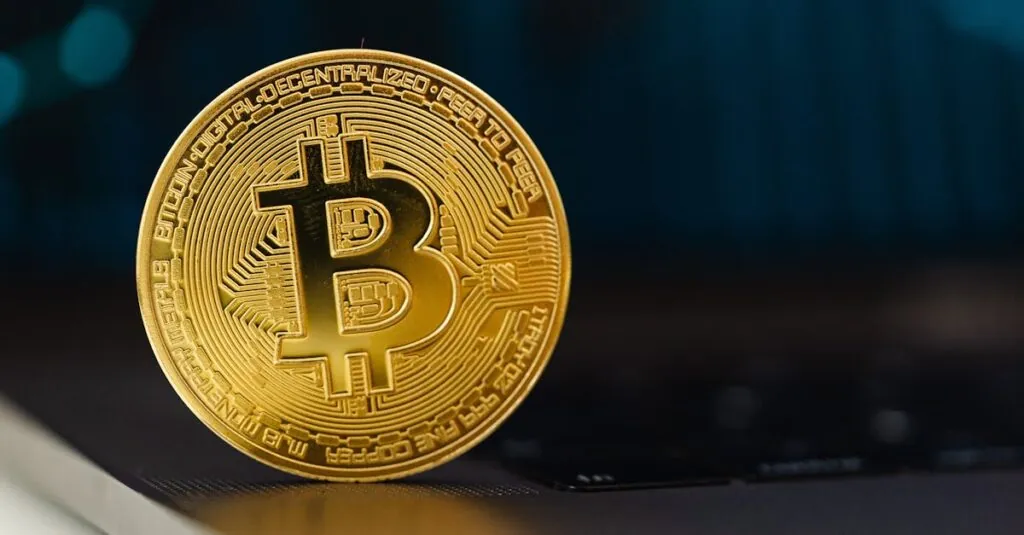In a world where centralized exchanges seem to pop up like mushrooms after a rainstorm, decentralized exchanges (DEXs) are the cool kids on the blockchain block. They’re shaking things up and giving traders the freedom to swap assets without the prying eyes of middlemen. Imagine a marketplace where you can trade without someone looking over your shoulder, like a secret club for crypto enthusiasts.
As the DEX landscape evolves, staying updated on the latest news is crucial. From groundbreaking innovations to regulatory developments, every piece of information can impact trading strategies. So, buckle up and get ready to dive into the wild world of decentralized exchanges, where the only limit is your imagination—and maybe your internet connection.
Table of Contents
ToggleOverview of Decentralized Exchanges
Decentralized exchanges (DEXs) operate on blockchain technology, enabling peer-to-peer trading without intermediaries. These platforms enhance user autonomy, allowing traders to maintain control over their funds. The elimination of centralized authority reduces risks associated with hacks and fraud that plague centralized exchanges.
Innovations in DEXs include automated market makers (AMMs), which use liquidity pools to facilitate trading. Users contribute assets to these pools, earning fees in return. DEXs also provide unique features such as limit orders and integration with various blockchain networks, expanding their accessibility.
Regulatory changes significantly impact the DEX landscape. Various jurisdictions are exploring frameworks that govern cryptocurrency trading, which can influence how traders interact with platforms. Staying informed about these developments is crucial for making strategic trading decisions.
Market trends indicate increasing adoption of DEXs among traders seeking privacy and security. A growing number of participants are attracted to the benefits DEXs provide, particularly in regions with stringent regulations on centralized exchanges. This trend suggests that usage will continue to expand as awareness increases.
Emerging DEX platforms frequently introduce innovative solutions to improve user experience. Features such as faster transaction times and lower fees enhance competitive advantages over traditional exchanges. Collaborations between DEXs and other blockchain projects further enrich the ecosystem, creating opportunities for users.
Understanding the evolving nature of decentralized exchanges paves the way for better trading strategies. Following recent developments and emerging trends allows traders to capitalize on opportunities while navigating the complexities of the cryptocurrency market. Staying updated ensures alignment with the dynamic landscape of DEXs.
Recent Developments in Decentralized Exchanges
Decentralized exchanges are rapidly evolving, with significant changes shaping the landscape. Staying abreast of recent news helps traders adapt their strategies.
Major News Highlights
Regulatory scrutiny continues to grow, with the U.S. Securities and Exchange Commission proposing new rules to classify decentralized exchanges under its jurisdiction. Several DEXs, like Uniswap and SushiSwap, have reported increased trading volumes, marking a surge in user engagement. Partnerships between DEXs and traditional finance institutions signal a shift toward mainstream acceptance. Furthermore, notable investments in DEX infrastructure show confidence from major players in the cryptocurrency sector, driving further development. These factors contribute to an evolving regulatory environment that traders must navigate.
Innovations and Upgrades
Emerging technologies are significantly enhancing DEX functionalities. Protocol upgrades, such as Layer 2 scaling solutions, improve transaction speeds while reducing costs. Advanced user interfaces aim to simplify trading experiences, making DEXs accessible to a broader audience. New features, including liquidity mining programs and yield farming initiatives, attract liquidity providers, increasing market depth. Ongoing integration with cross-chain capabilities enables seamless token swaps across different blockchain networks. Innovations like these position DEXs as competitive alternatives to centralized options.
Market Trends in Decentralized Exchanges
Decentralized exchanges (DEXs) continue to transform the cryptocurrency landscape, with significant trends emerging in trading volume and user growth, alongside varying regulatory impacts.
Trading Volume and User Growth
Trading volumes for DEXs recently surged, reflecting heightened user activity. Uniswap and SushiSwap, for example, experienced considerable increases in transactions, illustrating growing interest. Users seek the privacy and autonomy offered by DEXs, fueling this growth. In addition, liquidity mining programs have attracted more participants, encouraging them to engage actively. Data shows that many traders value the benefits of reduced fees and enhanced security. As engagement rises, DEXs continue to expand their user bases, indicating a promising future for decentralized trading platforms.
Regulatory Impacts
Regulatory changes increasingly influence DEX operations. The U.S. Securities and Exchange Commission’s proposed classification of DEXs under its jurisdiction has caught attention. This scrutiny leads to uncertainties surrounding compliance requirements and operational frameworks. Consequently, DEXs might need to adapt, ensuring they align with regulations while maintaining user trust and privacy. Partnerships with traditional finance institutions may help DEXs navigate these regulatory landscapes. Monitoring these developments becomes essential for traders who want to stay informed about potential impacts on trading practices and strategies.
Notable Decentralized Exchanges to Watch
The landscape of decentralized exchanges continues to evolve rapidly, presenting users with a variety of innovative options to consider.
Exchange Features and Offerings
Uniswap stands out for its automated market maker functionality, allowing users to trade directly from their wallets. SushiSwap, known for its advanced trading tools, offers features like limit orders and liquidity pools. Curve Finance excels in stablecoin trading, providing low slippage and optimized liquidity. PancakeSwap, built on the Binance Smart Chain, attracts users with lower transaction fees and fast processing times. Each exchange offers unique opportunities for yield farming, enabling traders to earn rewards by providing liquidity.
Community and Support
Community engagement plays a crucial role in the success of DEXs. Uniswap boasts a vibrant user base that actively participates in governance decisions. SushiSwap enhances user interactions through strategic community initiatives and events. Curve Finance promotes user loyalty with its active Discord channels, encouraging feedback and suggestions. PancakeSwap fosters a supportive environment through educational content and tutorials, helping new users navigate the platform. Strong community support helps build trust and enhances user experience across these exchanges.
Future Outlook for Decentralized Exchanges
Decentralized exchanges (DEXs) are poised for remarkable growth and transformation in the coming years. Regulatory scrutiny will shape their evolution as authorities increasingly focus on compliance and oversight. Innovations in technology promise to enhance user experiences, providing stronger security measures and faster transaction speeds.
Users can expect improvement in functionalities, particularly through automated market makers (AMMs) and Layer 2 scaling solutions. Increased competition among leading DEXs like Uniswap, SushiSwap, and Curve Finance will lead to more innovative features, such as liquidity mining and yield farming initiatives. Cross-chain compatibility will become crucial as traders seek seamless and efficient token swaps across various blockchain networks.
Market trends indicate that trading volumes will likely continue their upward trajectory, driven by the demand for privacy and autonomy in cryptocurrency transactions. Significant investments in DEX infrastructure signal confidence from major players, reinforcing the perception of DEXs as viable alternatives to centralized platforms. Partnerships with traditional finance institutions could further bridge the gap between cryptocurrencies and mainstream finance, enhancing trust and adoption.
Engagement within the DEX community remains a vital element for future success. Active participation in governance and support initiatives fosters a stronger connection between users and platforms. Staying informed about emerging trends and ongoing regulatory changes will be essential for users to navigate this evolving landscape effectively. Monitoring the developments among notable DEXs will provide insights into the future state of decentralized trading.
The decentralized exchange landscape is rapidly evolving with significant advancements and growing user engagement. As DEXs continue to gain traction they offer unique opportunities for traders seeking privacy and autonomy. The ongoing regulatory scrutiny will shape their future but partnerships with traditional finance can enhance trust and compliance.
Looking ahead the competition among DEXs is set to drive innovation and improve user experiences. Staying updated on market trends and technological developments will be crucial for users navigating this dynamic environment. With the right approach DEXs like Uniswap and SushiSwap are poised to lead the way in the cryptocurrency market.



